| Michelle M. Falter is an Associate Professor of English Education in the Department of Teacher Education and Learning Sciences at North Carolina State University. Currently, her research and scholarship are comprised of three major strands: critical approaches to teaching literature/texts (young adult and canonical), emotion and affect in teaching English Language Arts, and English teacher preparation and development. She can be reached at [email protected] |
Because I do think definitions matter, I decided to see what other scholars, teachers, and librarians from English and English Education fields who research and teach young adult literature had to say about this topic through a short Google Form questionnaire I posted in various YA lit Facebook groups. Here’s what they had to say:
Q: How do you define YA literature?
A: The most common answer I received noted that YA literature is literature that is written and marketed expressly for adolescent readers, defined as ages 12-18, although some went as high as 22 and as low as 11 years of age. This response indicates that intentionality of audience is important to scholars and teachers of YA literature. However, at least one person noted that sometimes YA literature is in part defined by readers, and can defy authorial or publisher intent. The Book Thief is an often cited example for this case, as Markus Zusak and his publisher first marketed the book for adults, but it was so widely received by adolescent audiences, that they remarketed it to teens.
Another key feature is that the protagonist of the story must be an adolescent, again of the same age range as stated before (approx. 12-18), and told through their perspective (i.e. first person narration). Others noted that additionally, the adolescents demonstrate growth and movement toward independence and adulthood through the novels, they learn to negotiate the power structures present in society, they focus on identity development and rites of passage (whether informal or formal). In addition, the issues and topics in the book are relevant to adolescent lives.
A: Several books by Laurie Halse Anderson were mentioned, including Speak and Wintergirls. One respondent wrote, of why they chose Speak: “This book focuses on a teen character who has experienced trauma. The primary setting is a high school. Melinda is a freshman in high school dealing with the trauma of a rape. Young people her age are the explicit audience for the book to show survivors they are not alone and to provide a window for others to think about the messages other people's behaviors send.” Another noted that Wintergirls by Laurie Halse Anderson is quintessentially YA lit because “the main character (Lia, a high school senior who lives with anorexia nervosa) grapples with issues such as identity and self-understanding, friendships and romantic relationships, and her future as a young woman.”
Internment by Samira Ahmed: In this novel the main character is a teenage girl navigating relevant and relatable adolescent issues of identity, relationships, family, racism, trust, and power (among others); the writing is accessible, characters are diverse, and narrative is heavy on dialogue (versus exposition); the author relates these issues to adolescents readers through familiar experiences (e.g., disagreements with parents), common concerns (e.g., developing friendships) and current issues (e.g., societal racism) while engaging readers through a fast-paced plot and 1st person POV.
The Disreputable History of Frankie Landau Banks by E. Lockhart. The novel features a sophomore in high school aspiring for the first time to chart her own identity in ways that violate the expectations of her family and friends while falling in love with a boy who expects her to be conventional. She is also not always entirely likable. And it is a smart book that reveals how language and tradition suppress creativity and equality (the boarding school she attends is named Alabaster for a reason!)
The Inheritance Games by Jennifer Lynn Barnes. It is fast-paced, features a 17-year-old protagonist, is written in the 1st person, involves a journey of identity formation, has a happy ending, is generally optimistic, contains no explicit sexual content, and has a strong appeal to teenagers because they can relate to the main character’s responses to the central conflicts. The main character is still in school and must respect parental figures — she is not independent yet.
The Serpent King by Jeff Zentner. The book features three teenage protagonists in rural Tennessee all on the cusp of graduating high school. The story deals with issues important to them, the angst of growing up and next phases of life, and choosing a path forward for themselves. Does not shy away from teens dealing with real or “adult” issues.
Twilight by Stephenie Meyer. Like most modern YA, it has a protagonist who is a high school student and the story is rendered through her perspective and at her emotional level. The writing style is also extremely accessible, not dense or elevated. However, as a romance with themes such as alienation and disapproval of parents, it is less likely to be of interest to young children.
The Hunger Games by Suzanne Collins
The Hate U Give by Angie Thomas
I Am Not Your Perfect Mexican Daughter by Erika Sanchez
The Poet X by Elizabeth Acevedo
Feed by M.T. Anderson
A: The first set of books mentioned were texts such as: The Adventures of Tom Sawyer and Huck Finn by Mark Twain, To Kill a Mockingbird by Harper Lee, Great Expectations by Charles Dickens, J.K. Rowling’s Harry Potter and the Sorcerer’s Stone (specifically), Ender’s Game by Orson Scott Card, and Rick Riordan’s Percy Jackson series. In each of these cases, the respondents noted that the texts actually have children as main characters (under the age of 12) and were either intended for adult or children readers (and not adolescent readers).
The other set of books people noted were canonical texts that are often taught in schools, such as
Lord of the Flies by William Golding, Pride and Prejudice by Jane Austen, Of Mice and Men by John Steinbeck, 1984 by George Orwell, Romeo & Juliet by William Shakespeare, or Fahrenheit 451 by Ray Bradbury. Several stated something similar to this respondent who argued that the confusion might come from “the mistaken belief that books commonly taught in high school English classes are necessarily YA….”
Two interesting, and perhaps debatable, texts people proposed as not being YA are Catcher in the Rye by J.D. Salinger and A Court of Thorns and Roses by Sarah J. Maas. One person noted that Salinger did not write Catcher for an adolescent audience, and as such it does not meet the definition. Another noted that Sarah Maas’ book certainly has appeal to older young adults but the content is “designed to titillate the reader” through explicit “sexual content,” and the character is 19 and living independently away from her family, and therefore not a “young” adult text.
A: It appears that the majority of scholars, teachers, and librarians agree that the distinctions matter. One respondent noted, “I do think the distinctions matter because the intended readership is different. There are different writing craft moves and vocabulary used, different references and allusions, different levels of age appropriateness, etc.” Another person who works in the childrens’ publishing world noted “The distinctions absolutely matter, because why else am I publishing these books except because their audience needs them in some way? Children are at different development points at different ages, and general age groups allow us to target books to their developmental needs as well as their interests.” Another scholar noted how for a long time adolescent literature was not deemed as worthy of academic study, and as such having these distinctions is very important to legitimize adolescents in and of themselves. One person wrote, “I think more and more we are carving out a space for YAL as its own category separate from but related to children’s literature. It has become too distinctive and deals with many more real world issues and with adolescents being capable and independent human beings. I think this is starting to happen in middle grades literature too where we will have four distinct categories of literature for young people after adding “new adult”. The major distinction from canonical lit is that YAL is written in modern language that adolescents relate to and can consume more easily, and in many cases YAL offers the same rigor as the canon. “
However, one person did note that these distinctions can also be problematic and limiting. They wrote: “I find these descriptors to be restrictive structures imposed by publishing and k-12 education that do not accurately represent the range of material embraced by teenage readers. They represent adult desire to confine young readers for the market or to suit what adults think young people need.”
A: Here’s what they had to say:
The Giver by Lois Lowry
The Book Thief by Marcus Zuzak
Feed by MT Anderson
The Chocolate War by Robert Cormier
Firekeeper’s Daughter by Angeline Boulley
Scythe by Neal Shusterman
Are You There, God? It's Me, Margaret by Judy Blume;
All American Boys by Jason Reynolds and Brendan Kiely.
The Poet X by Elizabeth Acevedo
The Hunger Games by Suzanne Collins
I Am Not Your Perfect Mexican Daughter by Erika Sanchez
Wintergirls by Laurie Halse Anderson
American Born Chinese by Gene Luen Yang
The Unstoppable Wasp illustrated by Jeremy Whitley
Unbroken: 13 Stories Starring Disabled Teens by Marieke Nijkamp
American Street by Ibi Zoboi
The Miseducation of Cameron Post by Emily M. Danforth
Pet by Akwaeke Emezi
A Monster Calls by Patrick Ness
King and the Dragonflies by Kacen Callender
Beauty Queens by Libba Bray
I Kissed Sarah Wheeler by Casey McQuiston
Legendborn by Tracy Deonn
Long Way Down by Jason Reynolds
Redwood and Ponytail by KA Holt
The Hate U Give by Angie Thomas
Aristotle and Dante Discover the Secrets of the Universe by Benjamin Alire Sáenz
Author's note: Thank you to my YA colleagues across the world who were willing to share your answers so that I could compile and create this post, including but not limited to Heather Matthews, Miranda Green-Barteet, Alyssa Lowery, Melanie Shoffner, Tara Gold, Shelly Shaffer, Katie Sluiter, Alisha White, Hunter Strickland, Christiana Salah, and Stacy Whitman.
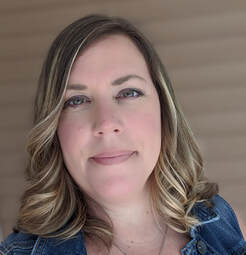
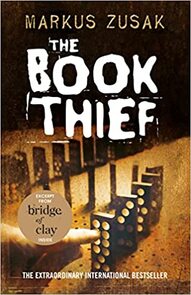
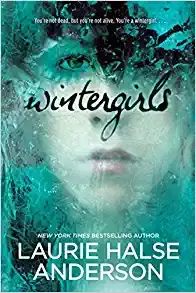
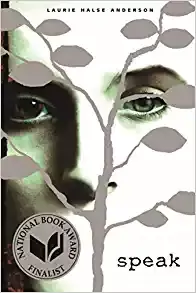
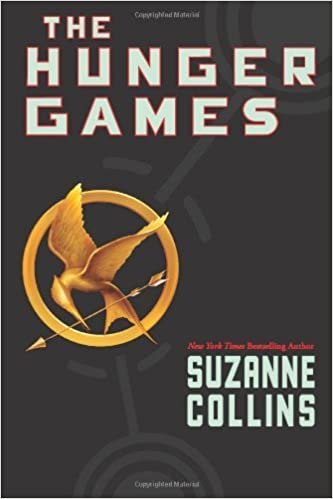

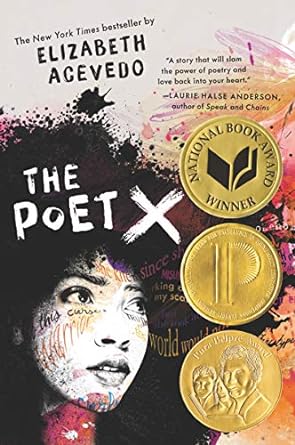
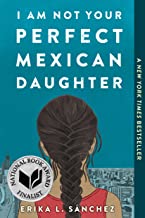
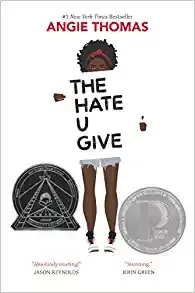
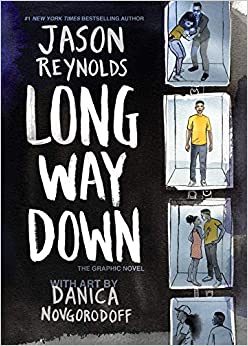
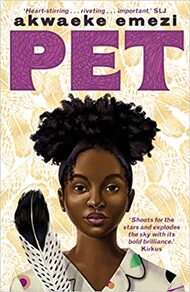
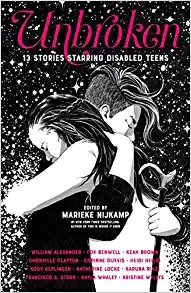
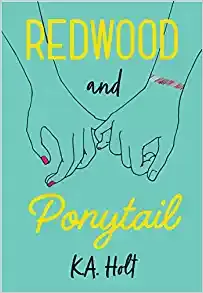

 RSS Feed
RSS Feed